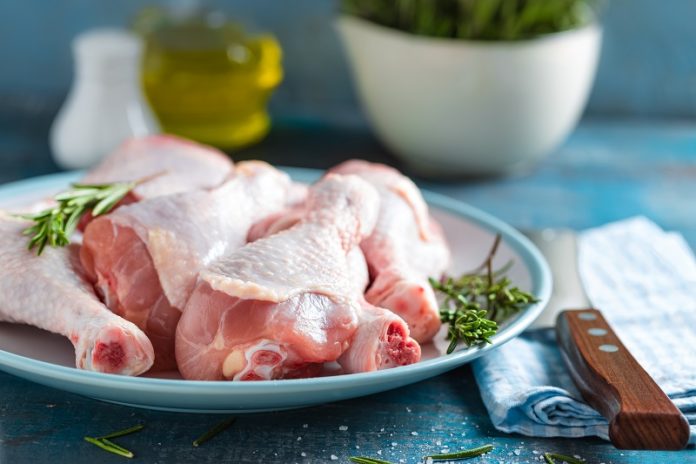Is food poisoning something that should worry the average person during the holiday season? It seems like every week there is another recall of some food item that is causing salmonella, e. coli, or listeria. It’s not just hype. Researchers Hernandez-Cortez, et. al., said in a 2017 paper, “The trend seen in the United States, the United Kingdom, and Europe indicates that the incidence of FBDs [foodborne diseases] is increasing.”
It was once common to think only of meat when taking precautions against pathogens. However, as we have seen, they can wind up on produce and even packaged foods. The CDC lists more than 20 multi-state outbreaks, in all kinds of foods, in 2018 alone!
You can take steps to protect yourself and your family. Knowing what foods pose the greatest risks, what types to purchase, and how to prepare them may prevent an unfortunate episode at your next holiday gathering. These guidelines apply all year round, however.
How Common is Food Poisoning?
Protecting yourself from food poisoning is important but, for most, keeping their guests safe is of even greater concern. An average of one in six people fall ill from illness each year, according to the CDC (Centers for Disease Control). While that does not necessarily translate to one out of every six of your dinner guests, it does mean that the chance of food poisoning exists. A separate CDC report stated that more than half of illness caused by food occurred at places that served food to larger groups of people, such as restaurants, banquet halls, and schools.
Food Poisoning at Larger Establishments
For those who work in food service, understanding the risks of food poisoning is key. Such venues as schools or other cafeterias, restaurants and similar outlets should have rules well in place for the preparation of foods. Training staff in the realities of food poisoning serves as important preventative measure. Employees and management should know why cleanliness plays a role. Food preparers should not come to work sick. And anyone who handles food must know how to store food safely, what foods pose the greatest risks, and what temperature each meat should reach in order to kill off harmful bacteria.
Food Poisoning at Your Holiday Gathering
No one wants to bear the responsibility for serving meals or snacks with food-borne illnesses. Knowing and applying the rules for food safety applies to your kitchen as well.
A German publication, Zeitschrift für Gesundheitswissenschaften (Journal of Public Health) looked at how people handle food at home. Of 1,000 households they studied, an alarming number engaged in what the researchers termed “inappropriate practices” for handling food safely. For example, only 31.8% washed their hands after handling raw meat. Note that I always recommend hand-washing over using hand sanitizer, as the latter poses a number of risks. And, in general, avoid any cleansers containing Triclosan.
Always clean the kitchen counter top and cooking utensils, as you go, using disinfectant. The authors of the paper I mentioned at the beginning of this article advise, “some microorganisms have the ability to settle on these surfaces and to survive in adverse conditions by forming biofilm, thus, cleaning with soap and water is not enough.” In addition to soap, heat and disinfectants like bleach increase the likelihood of killing pathogens.
Then there’s the refrigerator. Keep yours set no higher than 40 degrees Fahrenheit (5 Celsius), and don’t leave food sitting out too long prior to preparation. Always defrost meat, including fish, in the refrigerator.
What Meals Carry High Risk for Food Poisoning?
Highest on the list for potential risks of foodborne illness are pork, chicken, and shrimp. The villains include salmonella, E. coli, toxoplasma gondii, and numerous other difficult-to-pronounce bacteria and pathogens. Keep a guide for recommended meat temperatures for all types of meat in a handy place in your kitchen, and not just for the holidays. Gaining an education regarding safe food preparation is actually quite easy.
Avoiding Food Poisoning During the Holidays
Keep in mind that children and the elderly are at the greatest risk, so if your gathering includes people in these groups use even greater caution. If an older person, a child, or someone with special health considerations shows any signs of food poisoning, seek medical help. Many people can get through the acute phase of illness at home, but watch for signs of dehydration.
Food poisoning should not be part of your holiday celebrations. Eat at food service institutions you trust and follow safety tips when cooking meals at your home, office party, or club event. When preparing meats that carry a risk, heat to proper temperatures and clean up well during and after. An awareness of dietary needs and wants of your guests should guide your choices. With a basic education in food preparation and adherence to the guidelines, your holiday meals should bring only joy.








